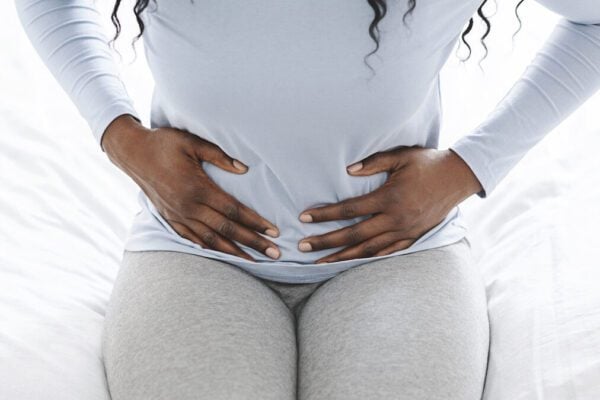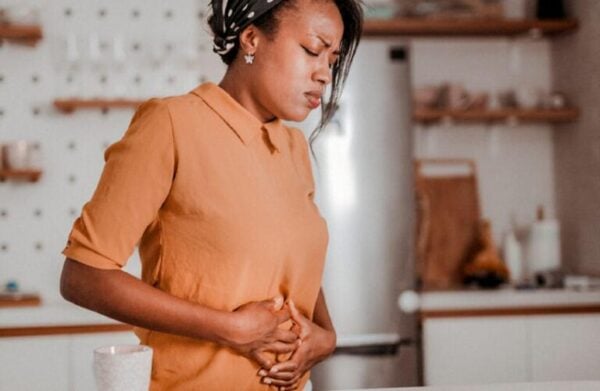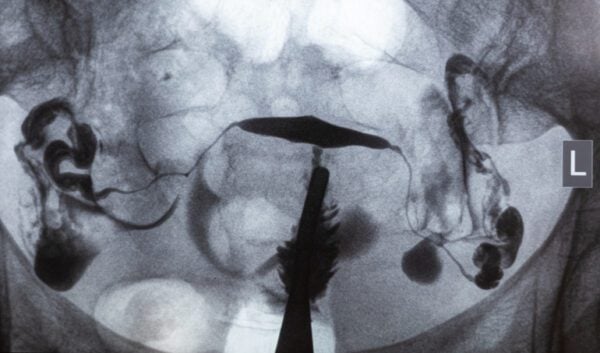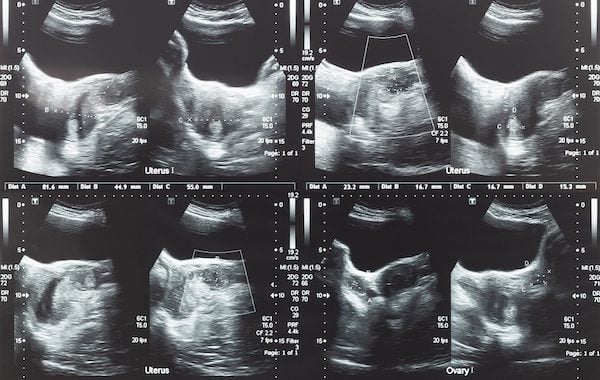Uterine fibroids, non-cancerous tumors arising from the smooth muscle of the uterus, affect up to 80% of Black women by age 50, often with more severe symptoms and earlier onset than other groups. These growths may be as small as a grape or large enough to cause swelling, pressure and serious health complications.
“Black women often encounter unique challenges, including delayed diagnosis, underrecognition of their symptoms and significant barriers to accessing high-quality care,” said Dr. Adeoti Efundademu Oshinowo, board certified Gynecologist at Eskenazi Health. “The stigma surrounding menstruation and deeply rooted systemic healthcare disparities certainly contribute to these issues.”

What are fibroids & who gets them?
Fibroids (also called leiomyomas or myomas) are benign muscle tumors. They’re most common in women aged 30–50. Risk factors include family history, obesity and African ancestry, with Black women facing a 3-9 times higher risk than white women.
Symptoms to watch for
- Heavy or prolonged menstrual bleeding (“flooding” or clot passage)
- Pelvic pain, pressure, bloating
- Frequent urination or constipation
- Fatigue from associated anemia
- Pain during sex
- Possible fertility issues or miscarriage in some cases
But many women are taught to carry on in silence. That’s why awareness and early screening are critical.

What is UAE/UFE (Uterine Artery Embolization)?
UAE (also known as UFE) is a minimally invasive outpatient procedure. During the treatment:
- A radiologist threads a small catheter through an artery (wrist or groin).
- Tiny particles are injected to block blood flow to fibroids.
- Without blood, fibroids shrink, relieving symptoms.
Most women return home the same day and resume normal activities within 5–7 days.
A breakthrough in fibroid care
A major April 1, 2025, press release from USA Fibroid Centers shared an extensive clinical study involving 1,285 patients, primarily in New York and Pennsylvania. Their results were transformative:
- 96% reported reduced heavy bleeding
- 94% experienced less pelvic pain and fatigue
- 92% had fewer urinary issues
- 85% enjoyed improved energy and mood
- Overall quality of life improved for 86% of participants
The lead investigator, Dr. Jean Francois Geschwind, called UAE “a major advancement in fibroid care,” and USA Fibroid Centers CEO Dr. Yan Katsnelson, MD, emphasized:
“This study should be a wake-up call. UAE is not just a viable alternative to surgery — it’s a superior option for many women.”

Why this matters in Indianapolis
In Marion County, many Black women face barriers to fibroid care, but Indianapolis offers strong regional support:
- Indiana Fibroid Center (Radiology of Indiana)
8040 Clearvista Dr, Suite 450, 317-621-5555
Specializes in UFE (no referral needed)
- Northwest Radiology VIP faculty offer screenings and minimally invasive embolization; self-referrals welcome.
- The Fibroid Foundation and White Dress Project provide national peer support, education and advocacy. The Fibroid Foundation supports local chapters and events, while White Dress empowers women to share experiences and access care.
- Resilient Sisterhood Project features information about Black women’s fibroid health and resources, including online support communities.

What to do if you suspect fibroids
- Acknowledge your symptoms. Don’t dismiss heavy bleeding, fatigue or pelvic discomfort.
- Ask for an exam. A pelvic exam or ultrasound can reveal fibroids.
- Know your treatment options.
- Seek culturally responsive care. Black women often receive late diagnoses. Connect with health care providers experienced in fibroid treatment.
- Join support networks. Connect with local chapters of national groups, share your story and learn from other Black women’s experiences.

Bottom line
Fibroids disproportionately affect Black women, and while heavy bleeding or pain might seem “normal,” they often signal treatable conditions. Thanks to innovations like UAE, many women in Indianapolis can access same-day relief, avoid major surgery, preserve their uterus and improve quality of life.
This reporting is made possible by a grant from the Indianapolis African-American Quality of Life Initiative, empowering our community with essential health insights. https://iaaqli.org/
Contact Health & Environmental Reporter Hanna Rauworth at 317-762-7854 or follow her on Instagram at @hanna.rauworth.
Hanna Rauworth is the Health & Environmental Reporter for the Indianapolis Recorder Newspaper, where she covers topics at the intersection of public health, environmental issues, and community impact. With a commitment to storytelling that informs and empowers, she strives to highlight the challenges and solutions shaping the well-being of Indianapolis residents.







